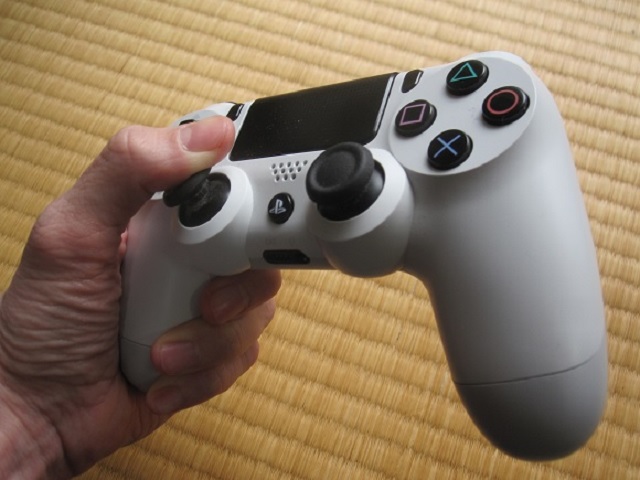
One year after Kagawa capped kids’ playtime, will Tokyo follow suit?
Last spring, politicians in Japan’s Kagawa Prefecture enacted the Ordinance for Measures Against Internet and Game Addiction, which prohibits anyone under the age of 18 from playing video games for more than 60 minutes a day during the week, or more than 90 minutes a day on weekends. Ostensibly, this is to protect them from interactive electronic entertainment turning their young minds to mush. Although the ordinance currently has no penalty built into it, kids who go over their daily limits are technically violating the law. Also banned: high school students using smartphones for non-studying purposes after 10 p.m., and younger users after 9.
Kagawa is the first place in Japan to enact such a law, but with less than a million residents in the prefecture, the ordinance affects only a small slice of Japan’s population. However, on Wednesday Tokyo Governor Yuriko Koike was asked if she has plans to place a legal video gaming time limit on kids living in the capital.
The question was posed on Wednesday’s plenary session of the Tokyo Metropolitan Assembly, and Koike responded with
“In regard to countermeasures against video gaming and Internet addiction, I believe it is important for the city to calmly assess available information. I am not considering instituting a uniform time limit that has no scientific basis.”
▼ Koike during the plenary session
香川県のゲーム条例に対する東京都の考えを小池都知事に質問しました。
— 藤井あきら🗻デジタル・スタートアップ議員🏳️🌈東京都議会議員(町田市選挙区) (@FujiiAkiraTOKYO) February 24, 2021
東京都では香川県の条例のように「条例でゲーム時間等を一律に制限する考えは無い」との明確な答弁です。
都民ファーストの会は都議会の最大与党として、これからも表現の自由を守るための提案・活動を続けてまいります。 pic.twitter.com/GorhWDWsjb
Koike’s words will come as a relief to Tokyo’s game-loving minors, especially since when Kagawa enacted its ordinance last spring, Koike said would “be watching what sort of effects it produces.” Apparently, though, her observations so far have led her to believe that a blanket limit on playing time or prohibited time blocks isn’t something society needs.
That’s not to say that Koike entirely dismisses that excessive gaming or Internet use can have negative effects on young people, and she said she would like to offer resources, such as developmental courses and counseling services, to help parents of children who may be spending more time with such hobbies than they should. However, in asserting that she wants to develop such resources while “respecting the independent autonomy of parents and their guardians,” she made clear her stance that how much gaming/net browsing is excessive is something that varies from individua to individual, and that figuring out how much is allowable is among the freedom, and responsibilities, of families themselves.
Source: Twitter/@fujiiakiratokyo via Hachima Kiko, Tokyo Metropolitan Government via IT Media
Top image © SoraNews24
● Want to hear about SoraNews24’s latest articles as soon as they’re published? Follow us on Facebook and Twitter!
Follow Casey on Twitter, where not being able to play Ys 4 was one of his earliest “Maybe I should study Japanese…” moments.

 Lawyers say Japanese video game ban for kids violates constitution, call for abolition
Lawyers say Japanese video game ban for kids violates constitution, call for abolition Japanese politicians want to set daily limit on how much time kids can spend playing video games
Japanese politicians want to set daily limit on how much time kids can spend playing video games Tokyo Olympics will not allow spectators from overseas
Tokyo Olympics will not allow spectators from overseas Japan’s Party of Hope announces war on hay fever, tragically named “Yurinomics” plan
Japan’s Party of Hope announces war on hay fever, tragically named “Yurinomics” plan Tokyo makes high school free for all families, even the rich ones
Tokyo makes high school free for all families, even the rich ones How to order snacks on a Shinkansen bullet train in Japan
How to order snacks on a Shinkansen bullet train in Japan Japan’s new difficult-to-drink-from beer glass protects your liver, but it’s a brutal experience
Japan’s new difficult-to-drink-from beer glass protects your liver, but it’s a brutal experience Demon Slayer: Kimetsu no Yaiba gets new roller coaster attractions and food at Universal Studios Japan
Demon Slayer: Kimetsu no Yaiba gets new roller coaster attractions and food at Universal Studios Japan Burger King Japan suddenly adds Dr. Pepper and Dr. Pepper floats to its menu nationwide
Burger King Japan suddenly adds Dr. Pepper and Dr. Pepper floats to its menu nationwide New Pokémon ice cream, dessert drinks, and cool merch coming to Baskin-Robbins Japan【Pics】
New Pokémon ice cream, dessert drinks, and cool merch coming to Baskin-Robbins Japan【Pics】 New Nintendo Lego kit is a beautiful piece of moving pixel art of Mario and Yoshi【Photos】
New Nintendo Lego kit is a beautiful piece of moving pixel art of Mario and Yoshi【Photos】 New samurai glasses are Japan’s latest weird must-have souvenir
New samurai glasses are Japan’s latest weird must-have souvenir Kyoto Tower mascot termination reveals dark side behind cute Japanese characters
Kyoto Tower mascot termination reveals dark side behind cute Japanese characters Hello, cosmetics! Clinique teams up with Hello Kitty this summer for first-time collaboration
Hello, cosmetics! Clinique teams up with Hello Kitty this summer for first-time collaboration This Nara workshop has been making deer crackers for more than 100 years and offers tours【Photos】
This Nara workshop has been making deer crackers for more than 100 years and offers tours【Photos】 Nintendo history you can feel – Super NES, N64, and GameCube controllers become capsule toys
Nintendo history you can feel – Super NES, N64, and GameCube controllers become capsule toys “The most Delicious Cup Noodle in history” – Japan’s French Cup Noodle wins our heart【Taste test】
“The most Delicious Cup Noodle in history” – Japan’s French Cup Noodle wins our heart【Taste test】 Starbucks releases a cute Frappuccino and Unicorn Cake…but not in Japan
Starbucks releases a cute Frappuccino and Unicorn Cake…but not in Japan McDonald’s Japan’s Soft Twist Tower: A phantom ice cream only sold at select branches
McDonald’s Japan’s Soft Twist Tower: A phantom ice cream only sold at select branches Yabai Ramen: What makes this Japanese ramen so dangerous?
Yabai Ramen: What makes this Japanese ramen so dangerous? Finally! Nintendo Japan expands Switch 8-bit controller sales to everybody, Online member or not
Finally! Nintendo Japan expands Switch 8-bit controller sales to everybody, Online member or not Japanese government wants to build luxury resorts in all national parks for foreign tourists
Japanese government wants to build luxury resorts in all national parks for foreign tourists To combat declining birth rate, Japan to begin offering “Breeding Visas” to foreigners
To combat declining birth rate, Japan to begin offering “Breeding Visas” to foreigners 10 things you should buy at 7-Eleven in Japan
10 things you should buy at 7-Eleven in Japan Studio Ghibli releases anime heroine cosplay dresses that are super comfy to wear
Studio Ghibli releases anime heroine cosplay dresses that are super comfy to wear Woman charged for driving suitcase without a license in Osaka
Woman charged for driving suitcase without a license in Osaka Studio Ghibli unveils My Neighbour Totoro miniature house model
Studio Ghibli unveils My Neighbour Totoro miniature house model Kyoto experiencing problems with foreign tourists not paying for bus fares, but not on purpose
Kyoto experiencing problems with foreign tourists not paying for bus fares, but not on purpose Fighting mild hunger with a Japanese soda that turns into jelly in the stomach【Taste test】
Fighting mild hunger with a Japanese soda that turns into jelly in the stomach【Taste test】 Studio Ghibli’s Howl’s Moving Castle tapestry unveiled in Japan for first time
Studio Ghibli’s Howl’s Moving Castle tapestry unveiled in Japan for first time McDonald’s new Happy Meals offer up cute and practical Sanrio lifestyle goods
McDonald’s new Happy Meals offer up cute and practical Sanrio lifestyle goods Sales of Japan’s most convenient train ticket/shopping payment cards suspended indefinitely
Sales of Japan’s most convenient train ticket/shopping payment cards suspended indefinitely Sold-out Studio Ghibli desktop humidifiers are back so Totoro can help you through the dry season
Sold-out Studio Ghibli desktop humidifiers are back so Totoro can help you through the dry season Japanese government to make first change to romanization spelling rules since the 1950s
Japanese government to make first change to romanization spelling rules since the 1950s Foreigner’s request for help in Tokyo makes us sad for the state of society
Foreigner’s request for help in Tokyo makes us sad for the state of society Ghibli founders Toshio Suzuki and Hayao Miyazaki contribute to Japanese whisky Totoro label design
Ghibli founders Toshio Suzuki and Hayao Miyazaki contribute to Japanese whisky Totoro label design Doraemon found buried at sea as scene from 1993 anime becomes real life【Photos】
Doraemon found buried at sea as scene from 1993 anime becomes real life【Photos】 Tokyo’s most famous Starbucks is closed
Tokyo’s most famous Starbucks is closed Princesses, fruits, and blacksmiths: Study reveals the 30 most unusual family names in Japan
Princesses, fruits, and blacksmiths: Study reveals the 30 most unusual family names in Japan Tokyo government announces new name for maternity/paternity leave, hopes to change attitudes
Tokyo government announces new name for maternity/paternity leave, hopes to change attitudes Pen-Pineapple-Apple-Pen singer to dine with President Trump, Prime Minster Abe during state visit
Pen-Pineapple-Apple-Pen singer to dine with President Trump, Prime Minster Abe during state visit Tokyo governor promotes silly Olympics umbrella hat, refuses to wear one herself
Tokyo governor promotes silly Olympics umbrella hat, refuses to wear one herself Did the Governor of Tokyo just cosplay as Buzz Lightyear to talk about coronavirus?
Did the Governor of Tokyo just cosplay as Buzz Lightyear to talk about coronavirus? Japanese politicians want to make walking while looking at your smartphone illegal
Japanese politicians want to make walking while looking at your smartphone illegal Tokyo proposes new law cracking down on requests for teens to share nude selfies online
Tokyo proposes new law cracking down on requests for teens to share nude selfies online Japanese government may soon start bribing people three million yen to move out of Tokyo
Japanese government may soon start bribing people three million yen to move out of Tokyo Hate speech may soon be punishable by a 500,000-yen fine in one of Japan’s largest cities
Hate speech may soon be punishable by a 500,000-yen fine in one of Japan’s largest cities Lots of Japanese parents want their kids to work for Nintendo, but not just for the money, survey says
Lots of Japanese parents want their kids to work for Nintendo, but not just for the money, survey says Super Crazy Kun wins seat in Toda City Council election
Super Crazy Kun wins seat in Toda City Council election Tokyo government creating its own official dating app, slated to launch this summer
Tokyo government creating its own official dating app, slated to launch this summer Tokyo government opening anime art archive museum this fall
Tokyo government opening anime art archive museum this fall Mayor of Osaka wants to legally control when kids can and can’t use smartphones in their own home
Mayor of Osaka wants to legally control when kids can and can’t use smartphones in their own home Tokyo may soon require bicyclists to strap on a helmet before getting on the road
Tokyo may soon require bicyclists to strap on a helmet before getting on the road Saitama officially forbids walking up and down escalators
Saitama officially forbids walking up and down escalators Japanese mom finds diabolically clever way to crack down on son’s excessive video gaming
Japanese mom finds diabolically clever way to crack down on son’s excessive video gaming
Leave a Reply